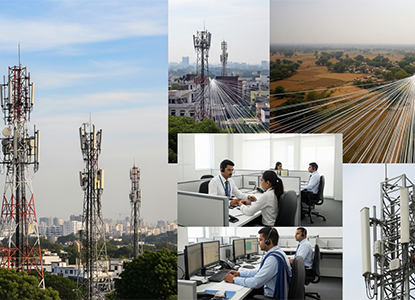
The Role of Transceivers in Indias Growing Telecom and IT Infrastructure
Indias telecom and IT sectors are expanding rapidly, driven by high-speed internet, 5G adoption, and growing data consumption. Transceivers play a critical role in enabling this digital transformation.
- Enable High-Speed Data Transmission: Transceivers convert electrical signals into optical or wireless signals, allowing fast, reliable data transfer, essential for high-speed internet, cloud computing, and enterprise networking in India.
- Support Expanding 5G Networks: Modern transceivers are vital for 5G infrastructure, ensuring low-latency, high-bandwidth communication that supports smart cities, IoT devices, and advanced mobile services nationwide.
- Facilitate Network Scalability: Scalable transceiver solutions allow telecom providers and IT companies to expand their networks efficiently, accommodating increasing users and data without compromising performance.
- Enhance Signal Reliability: High-quality transceivers reduce data loss and signal degradation, providing consistent connectivity across long distances and challenging environments in Indias diverse urban and rural areas.
- Enable Fiber Optic Infrastructure: Fiber optic transceivers form the backbone of Indias broadband and enterprise networks, ensuring secure, high-capacity communication for businesses, government, and residential users.
- Support Enterprise IT Systems: In corporate IT networks, transceivers ensure seamless connectivity for servers, data centers, and cloud platforms, enabling smooth operations and real-time data access.
- Integrate with Multiple Technologies: Transceivers are compatible with different network standards, including Ethernet, optical, and wireless, ensuring flexibility and adaptability as India’s telecom and IT systems evolve.







